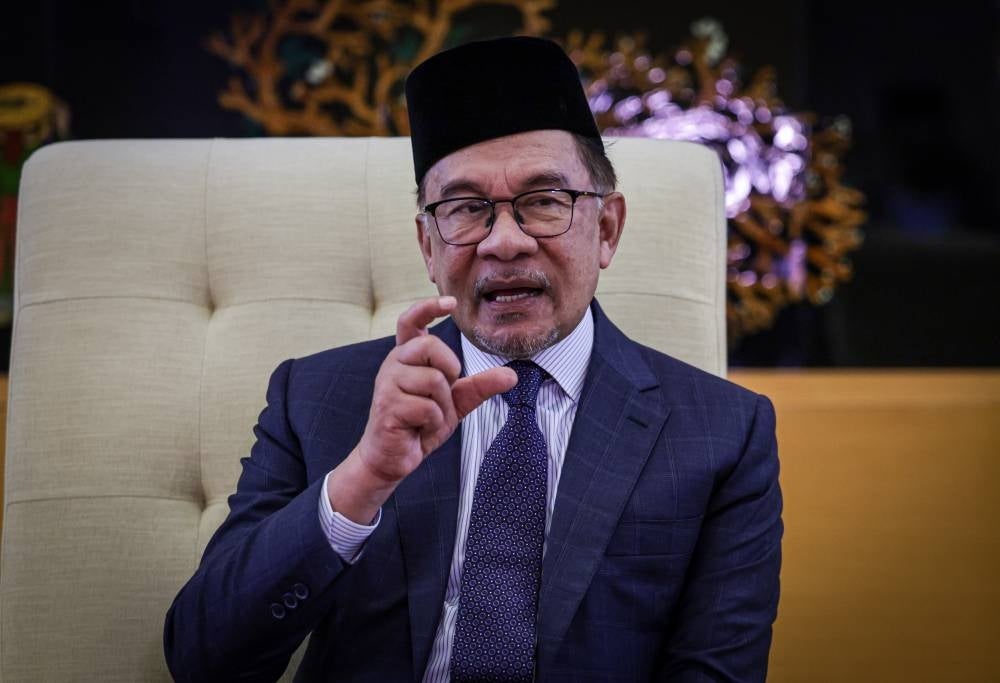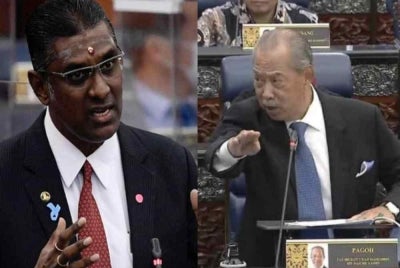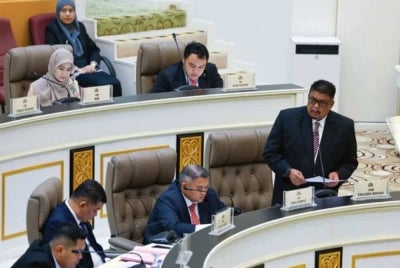Majority of Malays think Malaysia is heading in the wrong direction - Survey

SHAH ALAM – The majority of Malays seem to believe that the country is heading in the wrong direction as Malaysia’s Madani government inches closer to its one-year birthday.
According to a poll conducted by the Merdeka Centre, the survey done from Oct 4 – 24, revealed that 67 per cent of Malay respondents felt that Prime Minister Datuk Seri Anwar Ibrahim’s government has been leading the country astray.
The Indians came in second in expressing similar uncontented views towards the government’s stewardship of the country, at 61 per cent; followed by the Chinese at 54 per and the Muslim Bumiputera at 51 per cent.
In contrast, only non-Muslim Bumiputera gave the Anwar-led government a thumbs up, with 47 per cent expressing that Malaysia is on the right path.
The resoundingly unfavourable opinion towards the government's handling of the country mirrors the overall findings of the survey, indicating a sharp surge in a negative outlook on the country's direction since the conclusion of the 15th General Election in November 2022.
The percentage of this figure—as reported in the ‘One Year Anniversary of the Unity Government: Survey Rating Outlook'—grew exponentially from a mere 29 percent in December 2022 to 60 percent in October 2023.
“Voter sentiments over the country’s direction have taken a negative outlook due to persistent concerns over inflation and economic growth. Despite slowing inflation, concerns remain,” read the report’s brief.
Economic concerns were reported to be at the top of respondents’ minds at 56 per cent; with the breakdown of said concerns being: (1) unfavourable economic condition in general: 28.3 per cent; (2) high cost of living: 22.4 per cent; (3) weakening ringgit: 1.8 per cent and (4) minimum income: 1.5 per cent.
“Nearly four out of five voters cite the economy as the country’s biggest problem,” read an excerpt from the report.
Interestingly, the non-Muslim Bumiputera made up the bulk of those who cited economic concerns as the biggest problem facing the country, at 84.1 per cent; followed by the Indians at 81.2 per cent; the Malays at 81.1 per and the non-Muslim Bumiputera at 79.5 per cent.
However, of the five ethnic groups, the Chinese were comparatively least concerned about economic issues, with only 69.3 percent citing it as a concern.
Instead, the Chinese were most concerned about racial discrimination and polarisation, constituting the majority of those expressing their views on the matter at 8.4 per cent, followed by Indians at 2.5 per cent and Malays at 0.5 per cent.
According to the Merdeka Center, 1,220 respondents aged 18 and above were interviewed via telephone (fixed and mobile lines). The survey included respondents from all states across Peninsular Malaysia, as well as Sabah and Sarawak.
Respondents were selected using a random stratified sampling method based on ethnicity, gender, age, and state.
All constituencies (14 states and across 222 parliamentary constituencies) were surveyed, and the selection of respondents was proportional to the population in each parliamentary constituency.
Download Sinar Daily application.Click Here!















